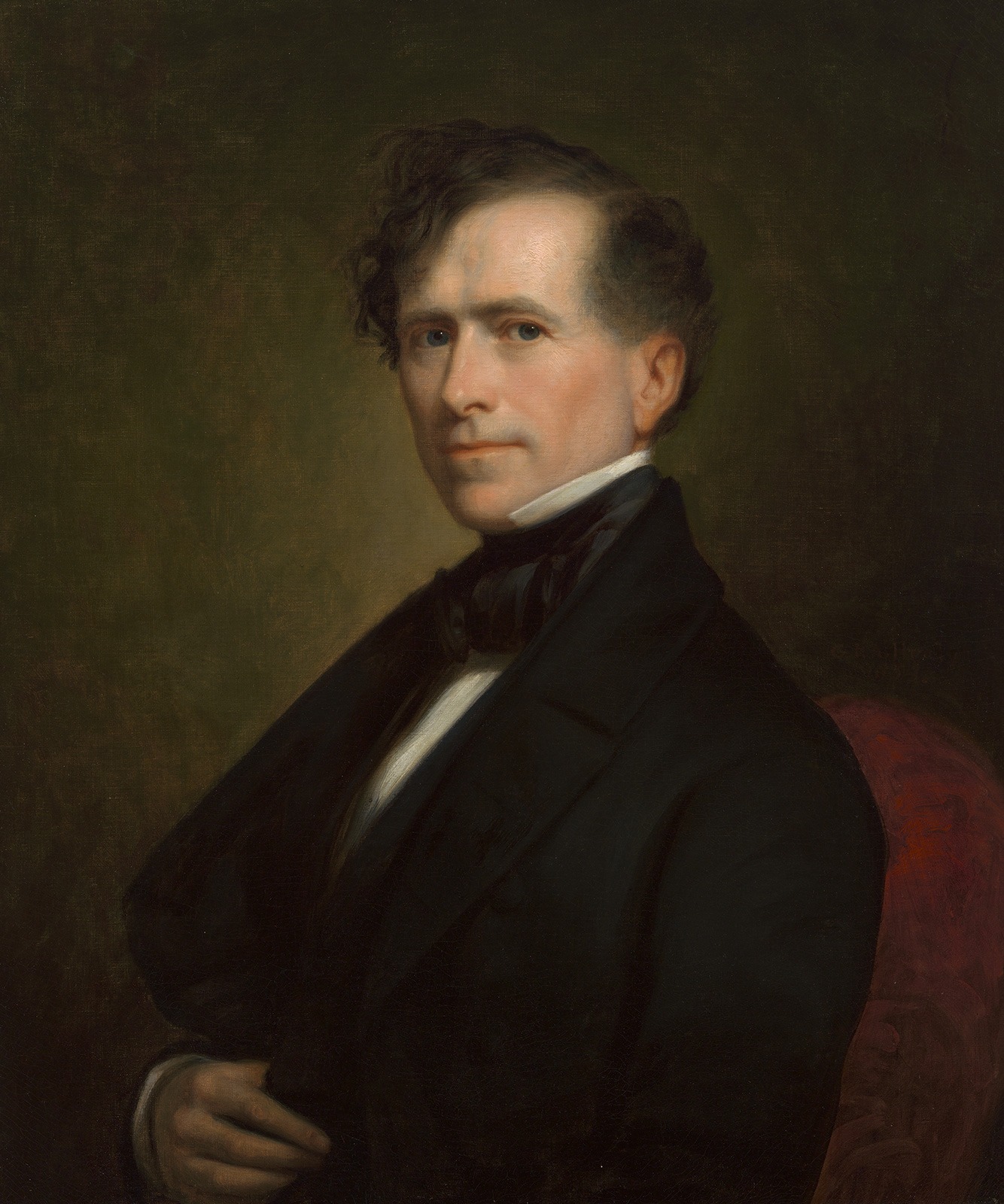Born on November 23, 1804, Franklin Pierce was born to Benjamin Pierce and Anna Kendrick, in Hillsborough, New Hampshire. His father was an American Revolutionary War hero and had some political influence in its rural town. On the other hand, his mother, Anna Kendrick, prioritized the education of their eight children.
At the age of 12, Franklin Pierce moved out of the public school and was transferred to a private academy. He enrolled in Bowdoin College Maine at the age of 15, where he has shown great public speaking potential. In 1824, he graduated fifth in his class.
When he was 24, he was elected to the New Hampshire State Legislature in 1829. After two years, with his father’s help, the elected governor, he was picked as the Speaker of the House.
He was sent to Washington, D.C. as a state representative. He rapidly climbed the political ladder; however, his life there was monotonous and sad. He became dependent on alcohol before he settled down.
Franklin Pierce married Jane Means Appleton, a pious and timid woman in 1834. They had three sons. After the birth of their third son, Franklin Pierce accepted to be elected as a U.S. Senator.
His wife persistently urged him to resign from the senate, and he heeded her in 1841. He then joined a temperance movement and worked as a lawyer.
When the Mexican-American war broke, Franklin Pierce became a private and aided the recruitment for the New Hampshire volunteers. Then, he served as a brigadier general in 1847 and led his troops to invade Veracruz’s shores under General Winfield Scott.
During his military service, Franklin Pierce injured his leg when he was thrown off his horse. He missed the victory at the Battle of Chapultepec while he was recovering from his injury. Franklin Pierce went back home to his family in New Hampshire after the war. He remained far from the public eye until the Democratic Party Convention in 1852.
During the nomination, he contended against Lewis Cass, Stephen A. Douglas, and James Buchanan; however, Franklin Pierce was the ultimate dark horse because he was nominated on the 49th ballot.
The presidential campaign ensues the controversy over the issues about slavery and the determination of the Compromise of 1850. However, both the Democrats and Whigs declared that their nominees are in favor of it. Franklin Pierce was not a famous politician who unexpectedly won the election and defeated Winfield Scott in the November election.
At the age of 47, Franklin Pierce was the youngest man elected as a president. His triumph was suddenly marred by tragedy after he and his wife witnessed their only surviving son’s death in a railroad accident. Jane, who completely opposed her husband’s candidacy, was inconsolable, while Franklin Pierce assumed the position while grieving and guilt-stricken.
Franklin Pierce came to office during the growing tension between the North and South. In his inaugural speech, he angered the Northerners when he alluded to the need for additional lands due to security purposes. They believed that Franklin Pierce is appeasing the Southerner’s’ desire to expand slavery.
On December 30, 1853, James Gadsden, the U.S. Minister to Mexico, negotiated the Gadsden Purchase. The United States acquired about 29,600 square miles of new territories in the southwest of Arizona and New Mexico. It established the two countries’ final boundaries and was intended to be used as the route for the Southern Pacific Railroad.
On May 30, 1854, Franklin Pierce signed the Kansas-Nebraska Act designed to solve the dispute of expanding slavery in the United States territories; little did he knew. The act was one of the significant political events that led to the American Civil War.
The Kansas-Nebraska Act authorized two territories of both Kansas and Nebraska to decide whether to permit slavery due to the possibility that both of them could become slave states. Northern activists and anti-slavery politicians were furious; meanwhile, Southerners assumed that Kansas would become a slave state while Nebraska was thought to be a free state.
The president personally endorsed to support Stephen Douglas’ bill to the Democrats.
The Canadian Reciprocity Treaty signed on June 5, 1854, opened the United States market to Canadian agricultural and raw products, which includes timber and fish. It attempted to enlarge the export market and acquire raw materials.
On October 18, 1854, Pierre Soule authored the Ostend Manifesto, which indicates that the United States threatened to conquer Cuba if Spain does not sell it. The State Department denied any connection with the said document, which forces Pierre Soule to resign.
Nationality laws were amended on February 10, 1855, wherein all children born overseas to U.S. citizen parents are guaranteed, American citizens.
Franklin Pierce considered running for another term to make amends for his inadequacies; however, he could not secure support from the Democratic Party.
As he stepped down the White House, Franklin Pierce settled in New Hampshire. During the Civil War, he voiced his support for the Northern cause. He did not support Abraham Lincoln and even publicly blamed him for leading the country to Civil War.
After Abraham Lincoln’s assassination, an angry mob surrounded his home, but he spoke to the crowd, which made them disperse peacefully.
After the Civil War, he turned to alcohol again. His drinking impaired his health and was aided by a caregiver. At the age of 64, he died on October 8, 1869.
US Presidents | ||

